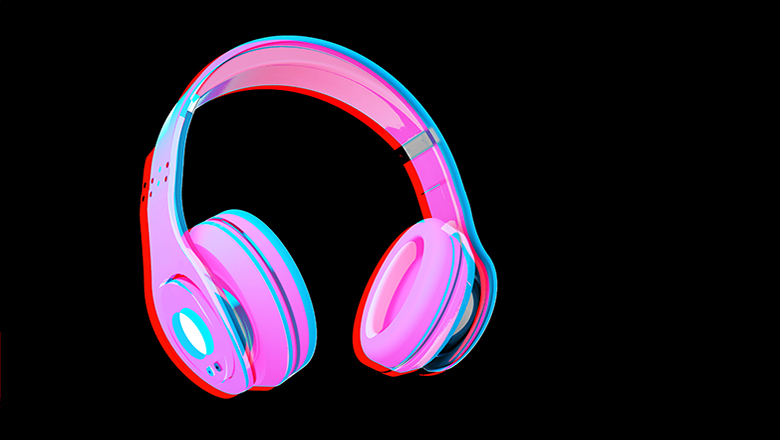Sharon Shuford
Sharon Shuford is senior director of events and professional development at the Building Owners and Managers Associations in Atlanta.

Pop culture, including art, entertainment, and culture, can give your conferences and professional development programs an added boost. Here are several tips for how to blend PD learning with modern-day appeal.
Many associations host annual meetings or conferences, but what separates the good from the bad often comes down to creativity, engagement, and experience. What successful professional development leaders have mastered is the art of conceptualizing conferences and programs that address their audiences and environments in meaningful ways.
PD leaders are experts at the science of attendee engagement and immersive learning, and they know their desired outcomes must mean moving away from traditional training to an emphasis on doing.
Pop culture is one way to accomplish this. By definition, pop culture is “generally recognized as a set of practices, beliefs, and objects that are dominant or ubiquitous in a society at a given point in time. Heavily influenced by mass media, this collection of ideas permeates the everyday lives of the society.”
Pop culture can be an engagement strategy to consider if you want to offer developmental learning programs that help your members prepare for the future. Using pop culture strategically in your programming can be a hook that pulls in attendees or helps them tap into creative or even transformational ideas.
Use of pop culture in programming can go far beyond pop-culture topics. Think of pop culture as “immersive”—a way to source material, provide meaningful content, and deliver memorable, developmental experiences to your attendees. Let’s look at three ways pop culture can impact your programs.
Before a conference, consider leveraging pop-culture technologies to identify leading voices. In other words, follow the followers. Twitter, Snapchat, YouTube, and other social media and online platforms can lead you to speakers and content that are relevant and respected in your industries.
On site, providing sessions where attendees have the freedom to explore issues and topics they identify, then have time to explore, share ideas, and resolve those issues or topics during small group or table-top discussion. In this type of scenario, session attendees can be asked to share their comments by reporting back from their table-top conversations to the general group. “Open space” sessions let attendees form and pick topics. “Conference weavers” give attendees the opportunity to decide their own conference track and find meaning at an individual level. These programming styles tap into the pop-culture sentiments of millennials, who are focused on experience and seek to share that experience outwardly.
When SITE Southeast went in search of a session to help event planners cope with changing learning environments and workspaces, they didn’t turn to peer planners. Instead, they went to design experts and immersed attendees in the experience of aligning workspace with creativity.
A two-part session was conceived, and each part was able to stand on its own. In part one, attendees learned about workplace trends in a changing global context, including new ways of working. Part two engaged attendees in group creativity exercises and let them experience firsthand how physical environments impact creativity. These sessions relied on pop-culture trends that stymied SITE Southeast members’ notions of what meeting spaces should look like.
Members were also called on to develop new scenarios and settings for meetings, helping to put what they learned to immediate use.
Conference and event techniques like gamification, open spaces, TED Talks, and other formats are now ubiquitous. Their origins can be traced to pop culture, especially that of the younger generations that spawned them.
When you consider the popularity of online learning on platforms like YouTube, and the evolution and speed of online dating, it’s not surprising that these event styles and content formats are now growing in popularity.
Associations are increasingly dedicating session time and event space to meeting new and emerging generational habits. Learning or innovation cafes make for informal spaces where paired professionals can meet. Ignite sessions emphasize content that’s fast-paced, informative, and inclusive of multiple speakers in the time that it usually takes to host one session.
Using pop culture strategically in your programming can be a hook that pulls in attendees or helps them tap into creative or even transformational ideas.
With creative use of pop culture, the lines between sourcing, content, and delivery frequently blur into immersive holistic sessions and programming.
For example, the Green Meetings Industry Council used contemporary music to address a host of issues facing the association while also delivering an important message to attendees. GMIC was experiencing a widening rift between membership factions. The resulting discord threatened to undermine the association. GMIC wanted to develop a session with a clear takeaway: How to deliver the sustainability story to audiences to bring attention and support to the work of the association.
GMIC hired a company called SongDivision to lead attendees in writing a song about their message. Angus Clark, the general manager of SongDivision who is also lead guitarist for platinum-selling and Grammy-nominated Trans-Siberian Orchestra, led tabletop teams through the process of songwriting to demonstrate a new way of storytelling. The process built energy and enthusiasm in the room, mitigating the fractious nature of the attendees and providing an immersive exercise that delivered on the session’s goal.
There are myriad ways to employ pop culture in conference and professional development learning. The savvy PD leader will focus on audience needs and use relevant pop culture to provide experiences that are authentic, engaging, creative, and true to discovery.